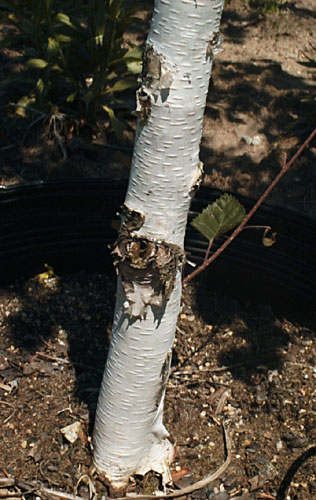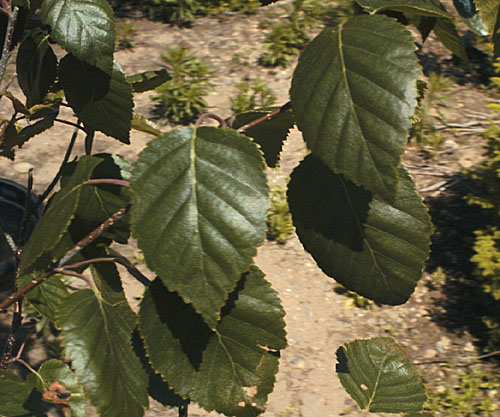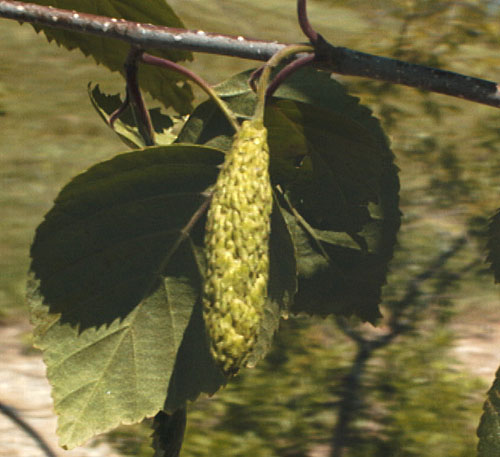Betula platyphylla
Asian White Birch
Betulaceae
ExpandHabitat
- native to Japan
- zone 1
Habit and Form
- large, deciduous tree
- 40' to 50' tall
- open habit
- fast growth rate
- medium texture
Summer Foliage
- simple, deciduous leaves
- alternate leaf arrangement
- up to 3" long
- dark green leaf color
- serrated leaf margin
Autumn Foliage
- yellow fall color
Flowers
- blooms in April
- not ornamentally important
- monoecious
Fruit
- small nutlets held in cylindrical catkins
- not ornamentally important
Bark
- young twigs quite warty and brown in color
- larger branches display showy, bright white bark
- bark does not exfoliate
Culture
- easy to grow
- does not appreciate excessive summer heat
- soil adaptable
- needs a moist soil for good growth
- avoid pruning from February through July to prevent bleeding
- best in full sun
Landscape Use
- casts light shade, good lawn tree
- specimen
- for showy bark
- near a deck or patio
- lawn tree
- campus tree
Liabilities
- bronze birch borer is a serious problem
- can suffer ice and snow damage
- not heat or drought tolerant
ID Features
- wary twigs
- white bark on main trunk
- alternate leaf arrangement
- serrated leaves up to 3" long
- yellow fall color
- non-exfoliating bark
Propagation
- by cuttings
- cultivars grafted on seedlings
Cultivars/Varieties
'Fargo' (Dakota Pinnacle®) - A very hardy selection out of North Dakota with a narrow, upright habit to 30' tall and 10' wide. The bark is white, and the plant has been marketed as heat/drought tolerant and borer resistant.
'Whitespire' - A form originating out of Wisconsin with white, non-peeling bark, good glossy green foliage and oval habit to 40' tall. While the plant has been marketed as being resistant to heat/drought and birch borer, testing indicates that the plant may not fare well in extreme heat. The bark also may not retain its white sheen with age.


